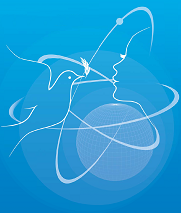Speaker
Aleksandra Schwenk-Ferrero
(Karlsruhe Institute of Technology)
Description
Germany is phasing out the nuclear energy use. The seven oldest Light Water Reactors which were taken offline in 2011 for a safety review immediately after the Japanese accident in Fukushima and the Kruemmel Nuclear Power Plant (NPP) are already shut down, six others would go offline by 2021 at the latest and the three newest by 2022.
Current R&D activities in German nuclear sector focus primarily on the safety issues of still operating units, the waste management strategy, the decommissioning of nuclear facilities (NPPs, research reactors, fuel cycle facilities) and the final disposal of high level wastes.
Phasing out nuclear power must not be regarded as synonymous with “phasing out” nuclear expertise. Long after Germany has completed the phase-out, such skills will continue to be essential for activities such as ensuring reactor safety, radiation protection, decommissioning, ultimate disposal of radioactive waste and crisis management, and also for maintaining a critical outlook on international developments. The German Government underlined this fact when launching the 6th Energy Research Programme entitled Research for an environmentally sound, reliable and affordable energy supply in August 2011.
The dispute on questions of nuclear waste management and final disposal in Germany is not only determined by the political parties' different perspectives and the conflict between the anti-nuclear movement and official politics, but it is also characterized by the dissent among experts regarding some fundamental questions of nuclear waste repository. Especially for high-level radioactive waste there are still debates about the possible repository type and site.
In 2014 the study on “Partitioning and Transmutation of Nuclear Waste: benefits and Challenges in Research and Implementation” has been performed under the supervision of National Academy of Science and Engineering- acatech
The acatech recommended continuing the R&D activities on P&T in Germany within a wide European framework and to examine the options for future participation of Germany in P&T oriented research in Europe in order to follow a European perspective with a possible benefit to German nuclear industry. German research should concentrate of the key areas: efficient partitioning and transmutation of transuranium elements, mainly assessing the technical safety of P&T facilities and the possible societal implications in all envisaged strategically significant steps. It was underpinned that the R&D must adopt an interdisciplinary approach and ability to communicate the scientific foundlings to the public within established research alliances.
Until 2017 the BMBF founded project "Disposal options for radioactive residues: Interdisciplinary analyses and development of evaluation principles (ENTRIA)” will analyze and assess deep geological repositories concepts with arrangements for retrieval in different host rocks and depths. The high level objectives are:
• To verify technical feasibility of these concepts, even with regards to the necessary standing time and the required lining depending on the given host rock
• To assess the geotechnical and geomechanical implementation of concepts for the operational and post-operational phases with scenario analysis
• To assess advantages and disadvantages of each concept
• To stimulate the international exchange of experiences
| Country or International Organization | Germany |
|---|
Primary author
Aleksandra Schwenk-Ferrero
(Karlsruhe Institute of Technology)

